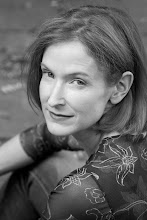 |
| Portrait by Sir Thomas Lawrence. |
The Author: How did you come to make such a mull of your affair with Jane?
Lord Harold: Good God! You might spare a fellow a very little! Do you not think I've been asking myself the same damned question--and for all eternity? I am one of those who are fated, perhaps, only to apprehend the worth of a creature once she is past all reclaiming. We exist, you know--in our own particular Hell. She was an excellent woman, Jane--unmatched, indeed, in her time and sphere. No beauty to speak of, mind--except, perhaps, for her very speaking eyes. When they did not mourn, they laughed irrepressibly, at some inner voice of ridicule she alone heard, that subjected all humanity to its scorn--as no eyes I've ever seen, before or since, have laughed. So must God Himself have roared, to witness our absurdity! It was her wit I loved; I confess it unashamedly. Lord Harold, enamored of a Bluestocking! She ruined me for every other woman.
And her hair! How I should have loved to have seen it unbound. I itched to loose those pins, at times, in the close conference of my carriage, when we two were locked together in the swaying conveyance; an intimate and separate world, whose tragic dignity was preserved only by my restraint--the forbearance of a gentleman. What is forbearance, after all, when its sole reward is the grave? I might have run my fingers through those chestnut locks, and held her fast, within the span of what little time remained to me--
The Author: But you did not; and she died unwed--though perhaps not unloved.
Lord Harold: Her works outlived her. I predicted that much, you know--it was I who told her she must write, as I lay gasping from the effects of the knife-wound that despatched me. She should never have achieved the greatness she did, had I once loosed that glorious hair, and taken her to wife; she should have become something quite else--Lady Harold, a formidable figure, tricked out by the most expensive modiste, which I dare swear she would have gloried in. But her writing? A thing for the fireside; for the amusement of children and indolent cousins, hanging on her sleeve. No: She was better by far, left to Genius, than claimed by me.
The Author: You are eloquent in your own defense.
Lord Harold: Naturally. Eloquence is the most necessary weapon of a gentleman's arsenal; it disarms reproof, even as it wounds. An art lost to your age--but one that defined mine. Recollect: A gentleman is nothing without Honour; and what is honour stripped of eloquence? A poor player, that struts and frets his hour upon the stage--a Buonaparte, in fact, glorying in the sacrifice of better men.
The Author: You devoted your life to defeating Napoleon.
Lord Harold: I see you call him by the name he chose, rather than the one to which he was born. I was never one to pander to a shortened stature, puffed up by bravado--except when it was called Nelson. For the Hero of Trafalgar, one must always make exception.
The Author: Hah! You are an adept, I see, at turning the conversation. But we are to talk of Jane--and so I must ask you, my lord, about the curious cask you bequeathed her. A chest full of papers, kept safe by your solicitors, and bearing your entire history--not to mention the history of your generation. A dangerous gift, was it not? And one contested by the Trowbridge family? Your brother the Sixth Duke was most incensed. Such names as he called Miss Austen!
Lord Harold: My brother is a fool. --Reason enough to have guarded my papers. Wilborough should have burnt them--but Jane knew how to use them.
The Author: The very fact of the bequest argues that you anticipated your death.
Lord Harold: But of course. We are all merely borrowers of Time. It is a wise man who banks upon nonexistence.
The Author: But what of those who gain Immortality?
Lord Harold: Such as Jane, you would mean? Why else cultivate Genius? I would not be sitting under your eye, my dear Authoress, were it not for my extraordinary discernment--in having seen in Miss Austen, what no one else of her circle recognised: that she possessed the animating flame, unique to herself and her age, that should prove imperishable. I warmed myself at that flame while I lived; I was perhaps scorched by it; but it has kept the cold of the grave forever at bay for us both. And what is the transitory state of a mere Lady Harold, after all, compared to that?




